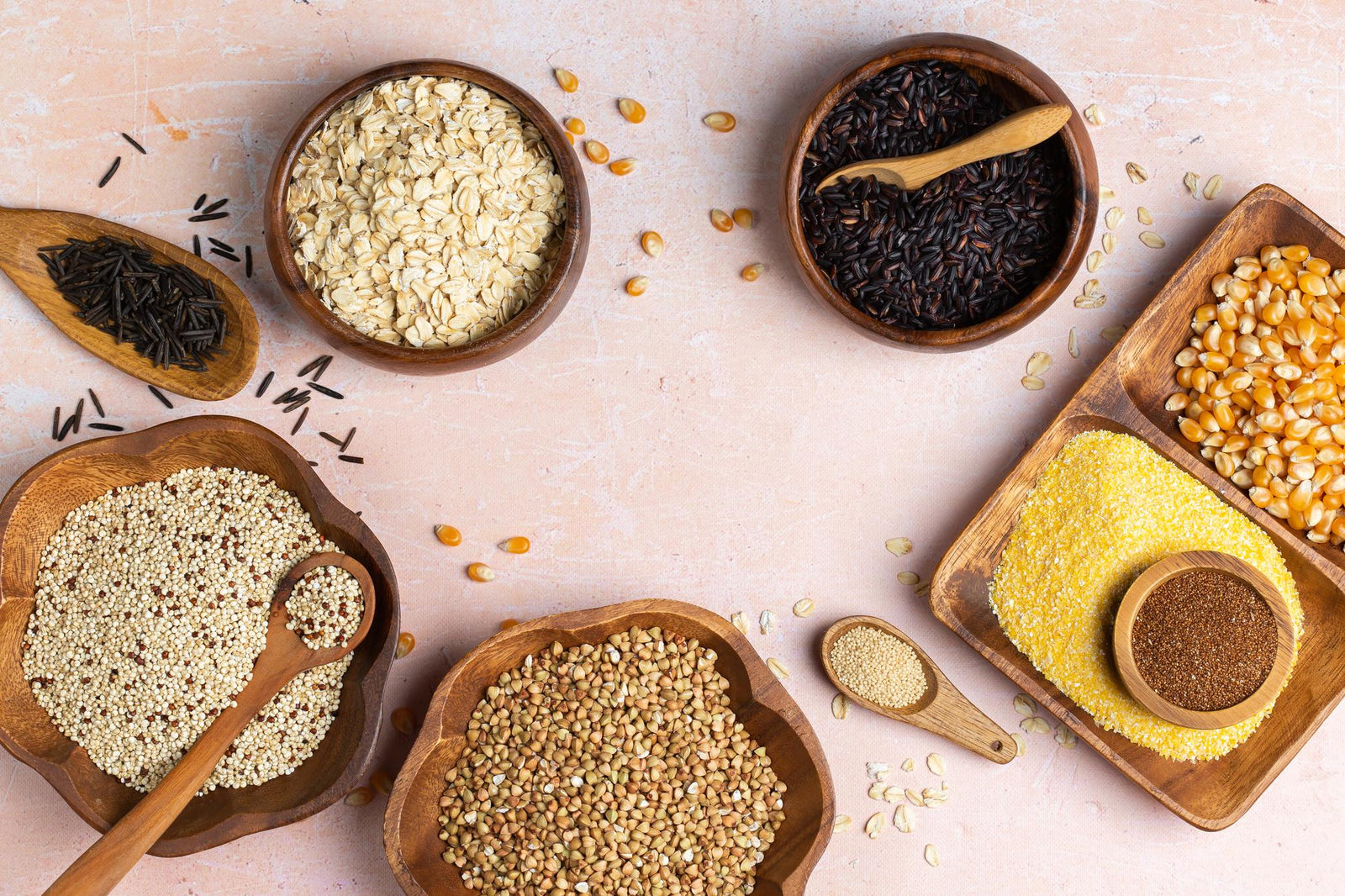
May 29, 2024 3 min read
Timing your meals and understanding when to consume different types of food can play a significant role in maximizing their health benefits. Grains and seeds are nutrient-dense foods that provide essential vitamins, minerals, and energy. Here’s a guide on the best times to eat various grains and seeds to optimize your health.
Regular Rolled Oats and Chia Seeds

Steel Cut Oats and Flaxseed
Green Lentils and Hulled Barley
Garbanzo Beans (Chickpeas) and Hemp Seeds

Amaranth and Pumpkin Seeds
Hulled Millet and Flaxseed
Red Lentils and Quinoa
Black Turtle Beans and KAMUT®️ Khorasan Wheat Berries

Flaxseed and Almonds
Hemp Seeds and Berries
By timing your consumption of grains and seeds, you can maximize their health benefits and support your body’s nutritional needs throughout the day. Whether it’s a hearty breakfast, a nutritious lunch, or a light dinner, these versatile foods can be incorporated into your diet to enhance your overall well-being.
❤ Try our USDA certified organic products ❤
Realted blogs:
Comments will be approved before showing up.

January 27, 2025 3 min read
Flaxseed, the tiny yet powerful superfood, is packed with nutrients that can support weight loss. From curbing hunger to stabilizing blood sugar, this guide dives into the science of how flaxseed can help you shed those extra pounds.

December 11, 2024 3 min read
Discover three quick and easy soup recipes featuring organic small red beans. From a classic vegetable soup to a creamy potato blend, these wholesome recipes are perfect for chilly days and busy weeknights. Packed with flavor and nutrition, these soups will warm your heart and soul this winter!

December 06, 2024 3 min read
This vibrant and nutritious Green Lentil Salad combines tender lentils with grilled chicken, fresh vegetables, and a zesty lemon dressing. Packed with protein, fiber, and essential vitamins, it’s the perfect healthy meal for any time of day.
© 2026 Be Still Farms- Real, Fine Organics.
Privacy | Terms | Refund Policy | Organic Certification
